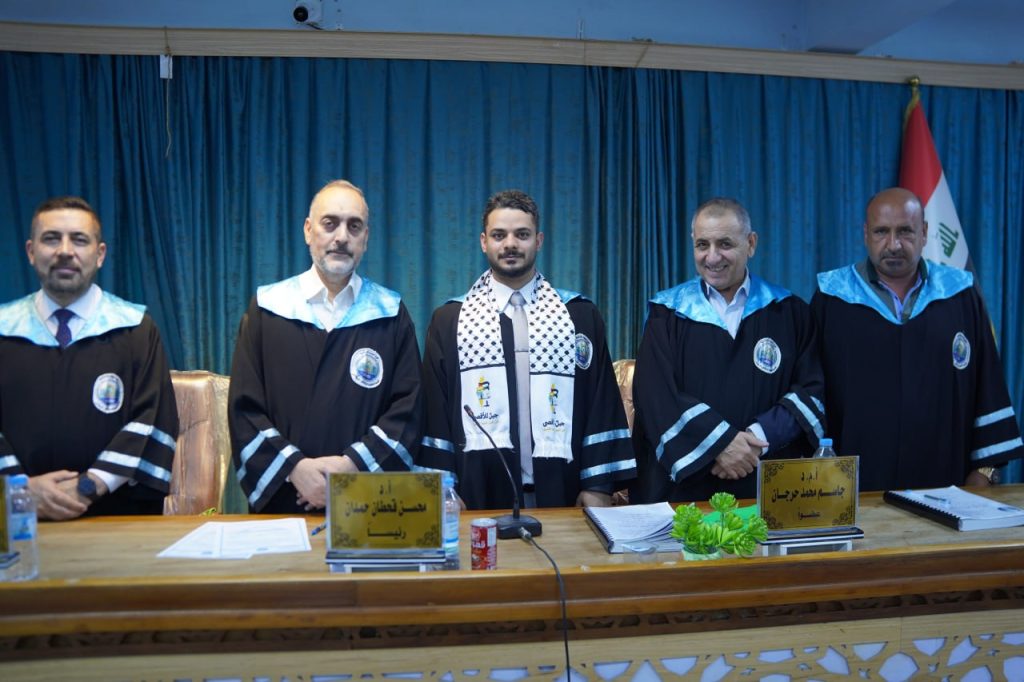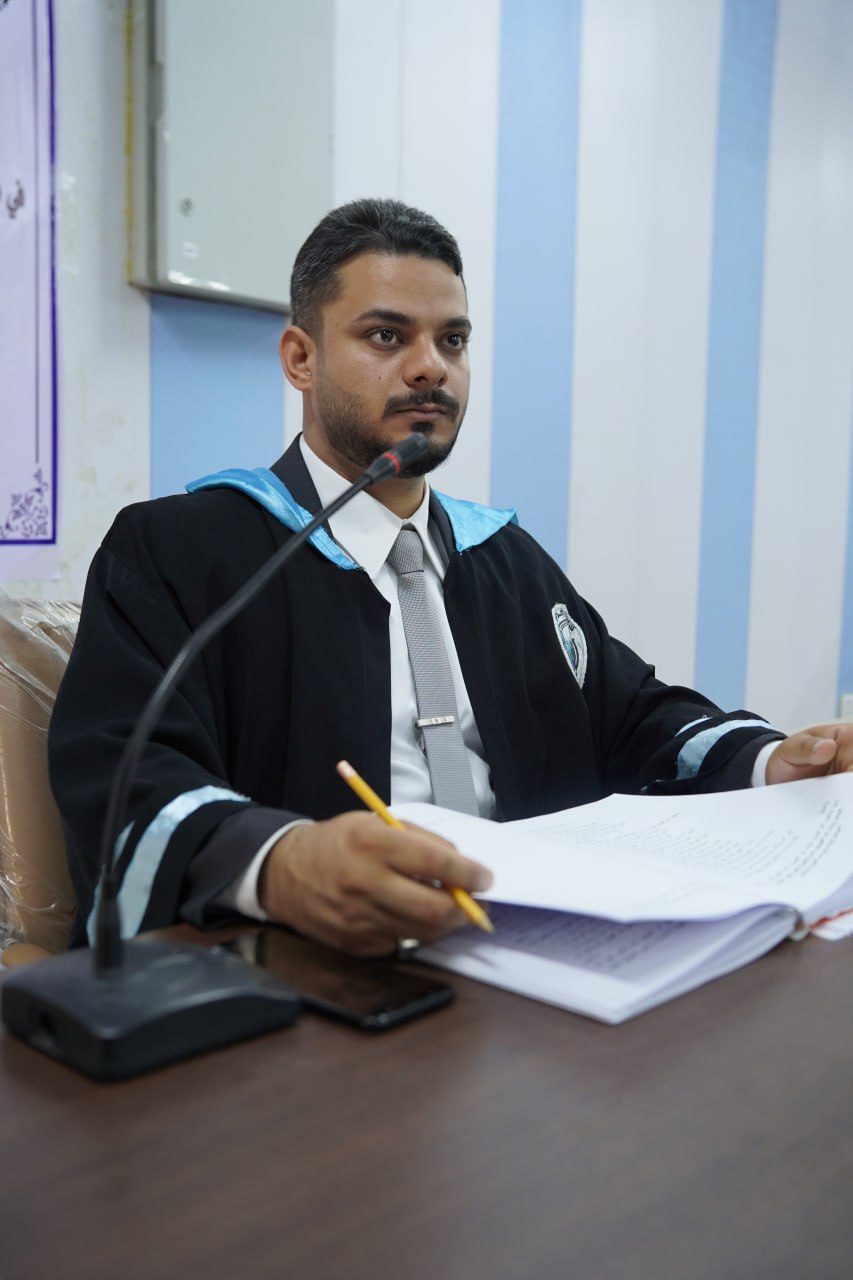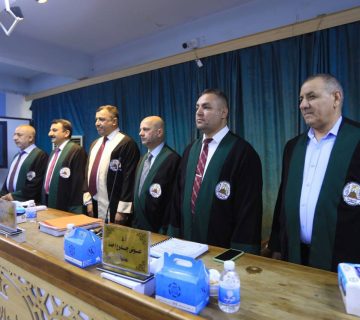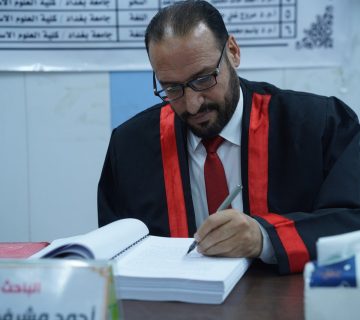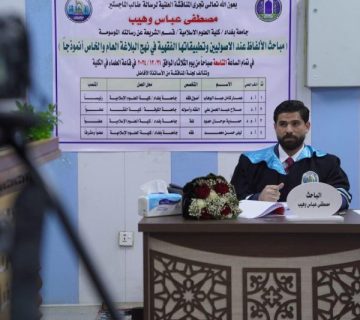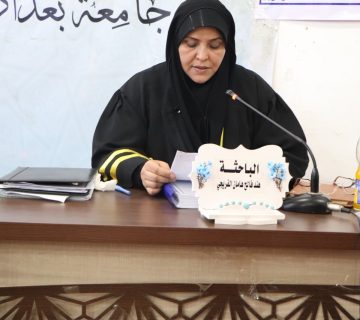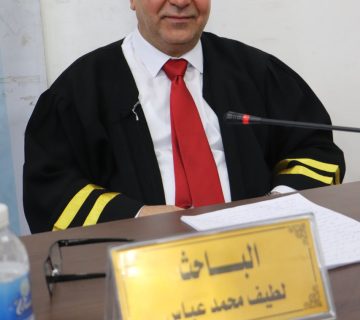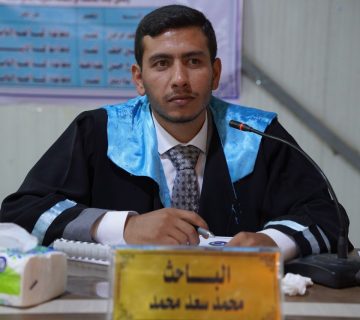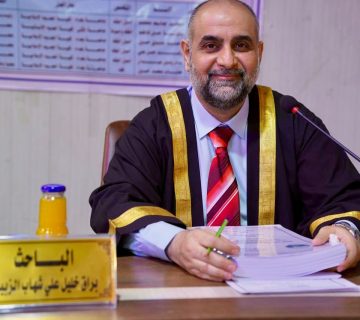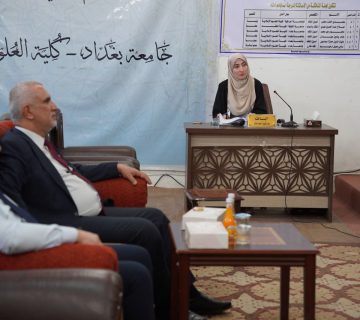The College of Islamic Sciences at the University of Baghdad discussed the thesis titled “Sheikh Hassan Al-Shafi’i and His Theological Efforts,” presented by student Mushari Imad Hussein Mushari from the Department of Islamic Belief and Thought, in the Scholars’ Hall.
The significance of this study lies in highlighting Sheikh Hassan Al-Shafi’i’s role and his evident contributions to establishing the foundations of the science of belief and theology. This is expressed through discussions on topics such as God, the universe, and humanity, as well as through inquiries into divine matters, prophethood, and matters of the unseen. Sheikh Al-Shafi’i dedicated his life and efforts to reviving the ancient Arab and Islamic scientific heritage found within the depths of manuscripts and neglected books.
Given the importance of Al-Abadi as one of the early scholars (d. 458 AH) and the relevance of his work to scholars and jurists, Al-Abadi relied on original sources in his jurisprudential views to derive rulings from their detailed evidence.
The study concluded with several findings and recommendations, the most important of which are: Sheikh Hassan Al-Shafi’i demonstrated depth and precision in his selection of evidence for articulating doctrinal issues, employing sharp insight according to a sound scientific methodology.
Moreover, the science of theology is not limited solely to the views of the Ahl al-Sunnah. Sheikh Hassan Al-Shafi’i composed an eloquent literary work titled Al-Durra Al-Kalamiyyah on the fundamentals of Islamic faith, which is considered one of the last contributions to the field of theology and reflects Sheikh Al-Shafi’i’s final thoughts on the subject.
The thesis was approved with a passing grade by the discussion committee, which consisted of Professor Dr. Mohsen Qahatan Hamdan as chair, along with Dr. Jassim Hassan and Dr. Jassim Muhammad Harjan as members, and Professor Dr. Yasin Khudhair Majbal as a member and supervisor.
Professor Dr. Ni’ma Dahash Farhan, the Dean of the College, and his administrative assistant, Professor Dr. Arkan Rahim Jabr, attended the discussion to closely monitor the academic atmosphere.
